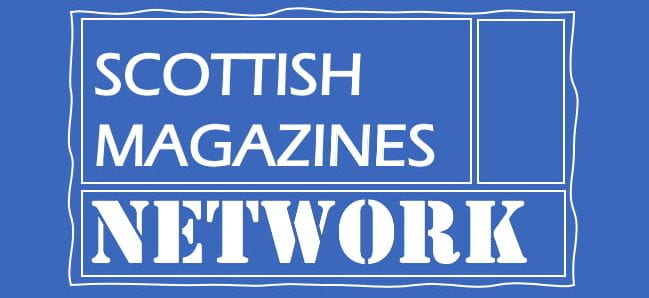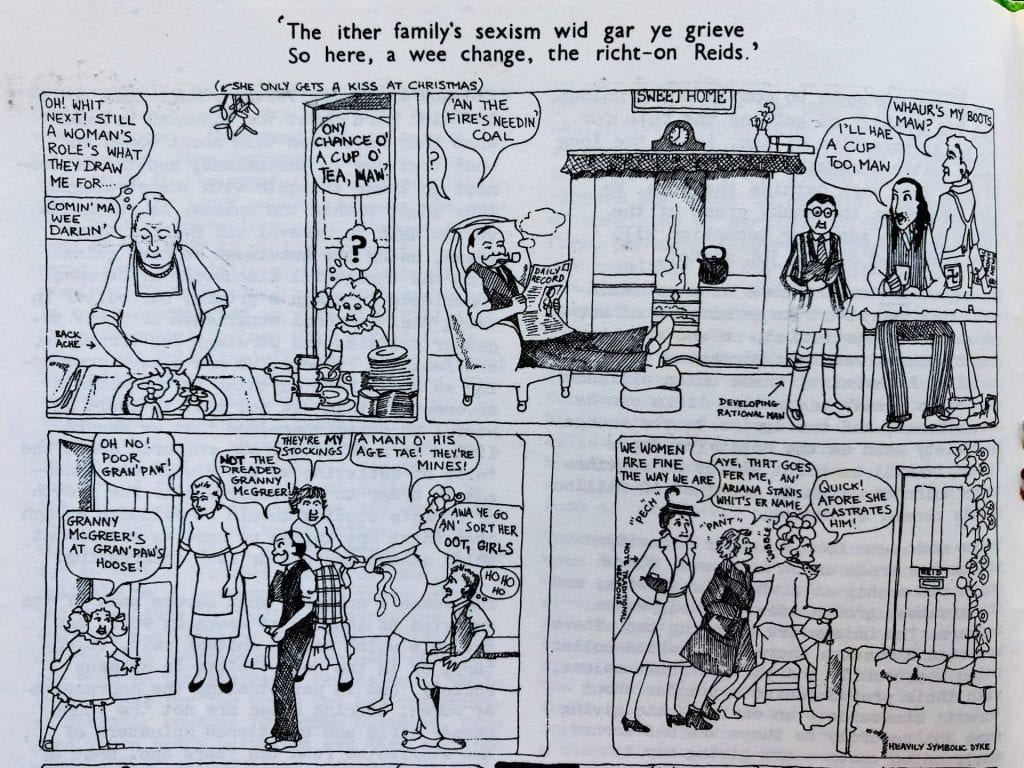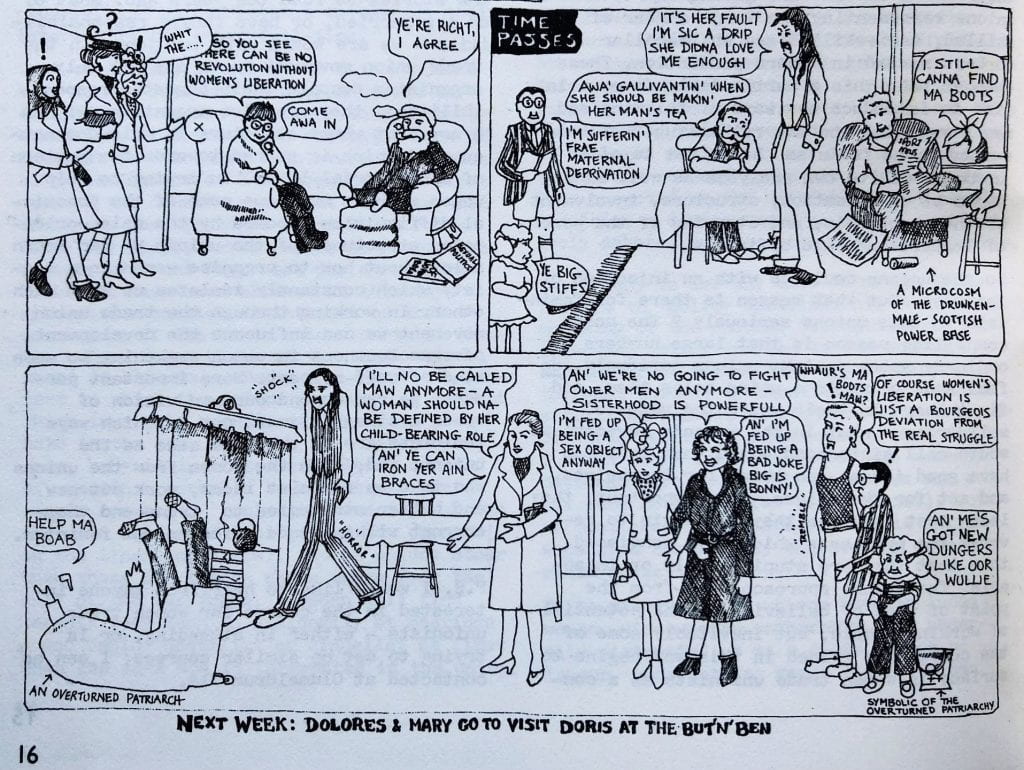Because in-person events weren’t possible during this project, we recorded a series of podcasts to introduce the world of these magazines. You can listen via Apple Podcasts or the SoundCloud player below.
-
Murdo Macdonald, on Edinburgh Review (1984-2014) and Common Sense (1987-1999)
This was a highly stimulating conversation on the student publishing scene at the University of Edinburgh in the 1980s, in which the relaunched Edinburgh Review and Common Sense both emerged, alongside the tremendous achievements of Polygon Press as a literary and academic publisher.
Professor Murdo Macdonald is our guide to the rich intellectual and social connections of this world, with the Edinburgh University Students Publication Board at its centre. Some key figures include Peter Kravitz, Jenny Turner, Richard Gunn and Duncan Mclean, and through them we encounter a very wide range of writers, thinkers, designers and artists — too many to name here, though you can gain a sense of this scene via Kravitz’s introduction to the Picador Book of Contemporary Scottish Literature (1998), courtesy of Janice Galloway’s website.
Interviewers: Alex Thomson and Scott Hames. The introduction to our conversation cites Linda Gunn and Alistair McCleery’s article ‘Wasps in A Jam Jar: Scottish literary magazines and political culture 1979–1999’, which you can access via the network’s informal bibliography.
-
John Herdman, on the Scottish literary and political scene of the 1960s and 70s
A lively exploration of the cultural and political changes we can trace through small Scottish magazines of the 1960s and 70s, from Lines Review to Akros, Chapman and beyond. 
The first issue of Scottish International went to press only a few weeks after the SNP’s breakthrough in the Hamilton by-election of 2 November 1967. But there was no easy correspondence between literary and political movements of the time, as the second wave of MacDiarmid’s Scottish Renaissance bristled against the ‘internationalism’ of 60s counterculture, and a young editor, Bob Tait, asked ‘What Kind of Scotland?’ the intelligentsia really wanted. John Herdman is the ideal guide to this terrain. Our conversation builds on his memoir Another Country: An Era in Scottish Politics and Letters, and traces these developments into the 1980s and beyond.
Interviewers: Rory Scothorne and Scott Hames. The introduction draws on Rory’s PhD research and on Eleanor Bell’s article ‘Rejecting the Knitted Claymore: the challenge to cultural nationalism in Scottish literary magazines of the 1960s and 1970s’, which you can access via the network’s informal bibliography. Edinburgh University library has an excellent resource on Scottish International, and Richard Crockatt has an evocative essay on Bob Tait and his world, published by Sceptical Scot.
-
Esther Breitenbach on Scottish feminist magazines
A fascinating introduction to the print culture of Scottish feminism, focused on the Scottish Women’s Liberation Journal (1977-78) and MsPrint (1978-81), and looking ahead to Harpies and Quines (1992-94). Dr Esther Breitenbach is our guide to the role of these magazines in feminist networking and political organising, the challenges of editorial/activist collectives, and the uncertain place of feminist perspectives in the wider Scottish magazine culture of the period.
Dr Esther Breitenbach is our guide to the role of these magazines in feminist networking and political organising, the challenges of editorial/activist collectives, and the uncertain place of feminist perspectives in the wider Scottish magazine culture of the period.
Interviewers: Rachael Alexander and Scott Hames. To explore this world further, key sources include Sarah Browne’s The Women’s Liberation Movement in Scotland (Manchester University Press, 2014), Shirley Henderson and Alison Mackay (eds), Grit and Diamonds: Women in Scotland Making History, 1980-1990 (Stramullion, 1990) and the anthology Women and Contemporary Scottish Politics (Polygon, 2001), edited by Esther Breitenbach and Fiona Mackay. The British Library’s ‘Sisterhood and After’ project also features a number of testimonies by women active in the women’s liberation movement in Scotland (Sheila Gilmore, Sandie Wyles, Rowena Arshad, Mukami McCrum, Elizabeth Armstrong, and Zoe Fairbairns). See also Rachael Alexander’s article and blog on Scottish feminist magazines, via the network’s informal bibliography.
BONUS: near the end of our conversation, Esther mentions the cartoon below, which she credits to Sue Innes (from SWLJ 4).
-
Peter Kravitz and Glenda Norquay: ‘Mind that Magazine?’
 A recording of the network’s launch event, ‘Mind that Magazine?’, which began with the reflections of Peter Kravitz and Glenda Norquay on the world of Edinburgh Review and Cencrastus in the early 1980s.
A recording of the network’s launch event, ‘Mind that Magazine?’, which began with the reflections of Peter Kravitz and Glenda Norquay on the world of Edinburgh Review and Cencrastus in the early 1980s.This is audio from an online meeting held with around 40 participants and members of the public — including a number of other magazine editors — who went on to have a lively discussion (which was not recorded). This episode complements the Murdo Macdonald podcast (above), and Jenny Turner’s blog on the magazine scene at the University of Edinburgh in the same period.


